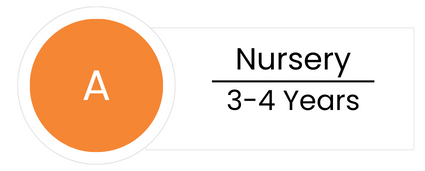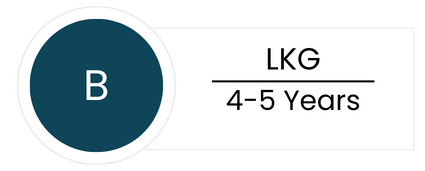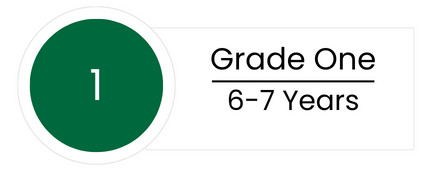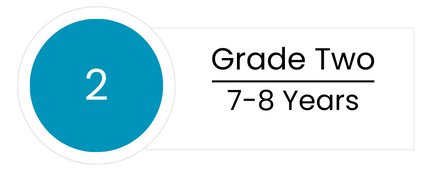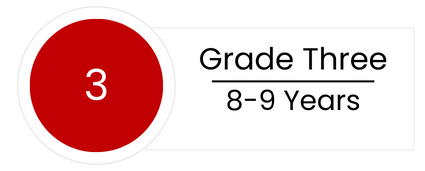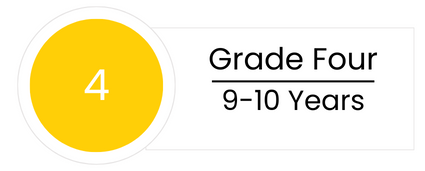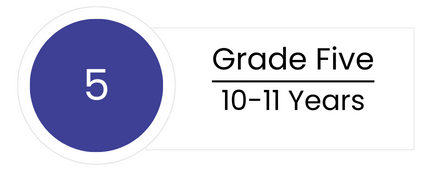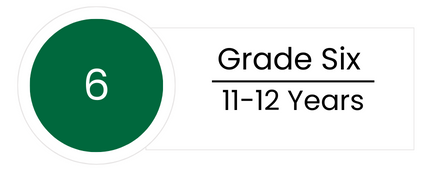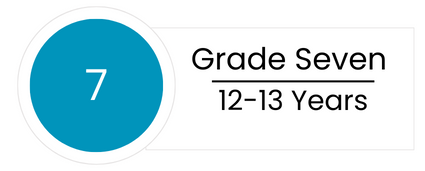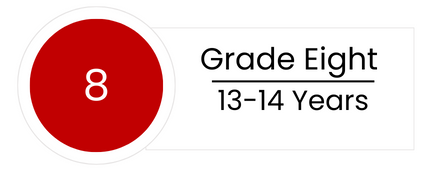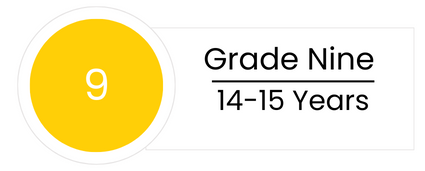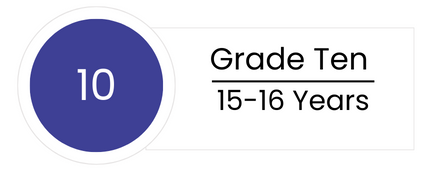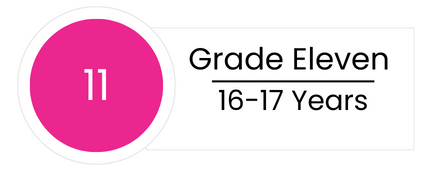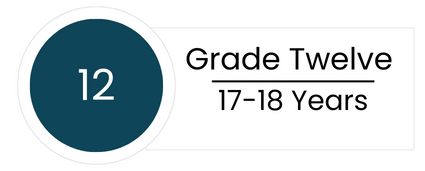Currently Empty: ₹0.00
Class 9 Online School is an accredited school. Are you looking for an Online school where your child can attend classes from the comfort of their home? If your answer is yes, you have come to the right place. We are the most popular Online Senior Secondary School which can provide the best education and valid certificate to your child?
Class 9 Online School offers the Senior Secondary Program. It follows the National Curriculum Framework 2023. Students are offered options to choose their board for their 12th Board Examination. They can either choose CBSE (Central Board of Secondary Education) or NIOS (National Institute of Open Schooling). Both the Boards are recognized by the Government of India. CBSE is more popular and is followed by most Public Schools in India. These are regular physical schools. NIOS is an “Open School” which caters to the needs of a heterogeneous group of students up to the pre-degree level. It was started as a project with in-built flexibilities by the Central Board of Secondary Education (CBSE) in 1979.
NIOS operates through more than 7400 Study Centers spread all over India and abroad. It also has study centers for Indian expatriates in the United Arab Emirates, Oman, Kuwait, Nepal, Canada, Kingdom of Saudi Arabia, Australia, United Kingdom, New Zealand, Malaysia, Singapore and the United States of America.
After completion of Grade 8, each student has to select either CBSE or NIOS Board. Subjects offered for each Board are as below: –

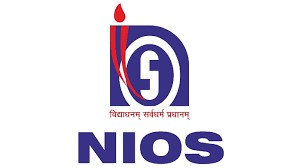
CBSE Subscription
Physical Product :
CBSE Books
Workbooks
Activity schedule
Digital Product:
Parent app
Services:
Individualised attention during live online classes
NIOS Subscription
Physical products:
NIOS Books
Workbook for children
Activity schedule
Digital Product:
Parent app
Services:
Individualised attention during live online classes
CBSE SUBJECT CHOICES & EXAM SCHEME
There are a total of 5 compulsory subjects that students have to appear for in the CBSE 10th board exams 2024, these include Mathematics, English, Science, Social Science, and Hindi. In all CBSE schools, Hindi is the second compulsory language after English. The choice of the third language is left up to the students and includes options available in Group L. In the CBSE Class 10 “Best of 5” rule, a student’s final score is calculated based on their performance in the best five subjects out of the six they have studied. Options available are as below: –
Languages - (Group-L)
Arabic, English, French German, Spanish, Tamil, Telugu, Hindi, Kannada, Malayalam, Marathi, Sanskrit, Urdu
Main Subjects - (Group-A1)
Mathematics, Science, Social Science
Other Academic Electives -(Group-A2)
Carnatic Music (Vocal), Hindustani Music (Vocal), Painting, Computer Applications
CBSE CURRICULUM
Class 9 Online School CBSE Curriculum
SCIENCE FOR CLASS 9
Food
- Higher yields
Materials
- Different kinds of materials
- What are things made of
- What is there inside an atom
The World of the Living
- Biological Diversity
- What is the living being made of?
- How do we fall sick?
- How do substances move from cell to cell?
Moving Things, People and Ideas
- Motion
- Force and Newton’s laws
- Gravitation
- Work, energy and power
- Floating bodies
- How do we hear from a distance?
How Things Work
Natural Phenomena
Natural Resources
MATH FOR CLASS 9
- Number System
- Polynomials
- Coordinate Geometry
- Linear Equation in Two variables
- Introduction to Euclid’s Geometry
- Lines and Angles
- Triangles
- Quadrilaterals
- Areas of Parallelogram and Triangles
- Circles
- Constructions
- Heron’s Formula
- Surface Areas and Volumes
- Statistics
- Probability
ENGLISH FOR CLASS 9
Language Items
- Sequence of tenses
- Reported speech in extended texts
- Modal auxiliaries
- Non-finites (infinitives, gerunds, participles)
- Conditional clauses
- Complex and compound sentences
- Phrasal verbs and prepositional phrases
- Cohesive devises
- Punctuation
Method and Techniques
- Role Playing
- Simulating real-to-life situations
- Dramatising and miming
- Problem solving & decision making
- Interpreting information given in tabular form and schedule
- Using newspaper clippings
- Borrowing situations from the world around the learners, from books and from other disciplines
- Using language games, riddles, puzzles and jokes
- Interpreting pictures/sketches/cartoons
- Debating and discussing
- Narrating and discussing stories, anecdotes, etc
- Reciting poems
- Working in pairs and groups
- Using media inputs – computer, television, video cassettes, tapes, software packages
HISTORY FOR CLASS 9
Events & Process
- French Revolution
- Russian Revolution
- Rise of Nazism
Economics and Livelihood
- Pastoralists in the Modern World
- Forest Society and Colonialism
- Farmers and Peasants
Culture, Identity and Society
- Sports and Politics. The Story of Cricket
- Clothes and Cultures
GEOGRAPHY FOR CLASS 9
Land and people
- India
- Climate
- Drainage
- Natural Vegetation
- Population
POLITICAL SCIENCE FOR CLASS 9
- Democracy in contemporary world
- What is democracy? Why democracy?
- Designing of democracy in India.
- Electoral politics in democracy
- Institutions of parliamentary democracy
- Citizens’ rights in democracy
ECONOMICS FOR CLASS 9
- The economic story of Palampore
- People as Resources
- Poverty as a challenge facing India
- Food security
NIOS SUBJECT CHOICES & EXAM SCHEME
For Certification, a minimum of five subjects including atleast one language or atmost two languages are compulsory.
Group A
Secondary Course offers a choice of languages i.e. English, Hindi, Urdu, Sanskrit, Telugu, Kannada, Marathi, Sanskrit, Malayalam, Arabic and Tamil.
Group B
Mathematics, Science and Technology, Social Science, Economics, Business Studies, Data Entry
Operations, Psychology, Indian Culture and Heritage, Accountancy, Home Science, Hindustani Music, Carnatic Sangeet, Entrepreneurship, Painting and Data Entry Operations.
NIOS CURRICULUM
Class 9 Online School NIOS Curriculum
ACCOUNTANCY
Model 1. Introduction and Basic Concepts
- Introduction to Accounting
- Accounting Concepts and Conventions
- Accounting Terms
Model 2. Journal and Subsidiary Books
- Accounting Equation
- Bank reconciliation Statement
- Purchases and Sales Book
- Double Entry System
- Journal
- Cash Book
Model 3. Ledger and Trial
- Balance
- Ledger
- Trial Balance and Accounting Errors
Model 4. Depreciation, Provisions and Reserves
- Provisions and Reserves
- Depreciation
Model 5. Preparation of Financial statements
- Financial Statements (Without adjustments)
- Financial Statements (With adjustments)
Model 6. Computers in Accounting
- Introduction to Tally
- Computers in Accounting
SCIENCE & TECHNOLOGY
Module 1: Measurement in Science
- Measurement in Science & Technology
Module 2: Matter in Our Surroundings
- Atoms and Molecules
- Chemical Reaction and Equations
- Atomic Structure
- Periodic Classification of Elements
- Chemical Bonding
- Acids, Bases and Salts
Module 3 Moving Things
- Motion and its Description
- Force and Motion
- Gravitation
Module 4 Energy
- Sources of Energy
- Work and Energy
- Thermal Energy
- Light Energy
- Electrical Energy
- Magnetic Effect of Electric Current
- Sound and Communication
Module 5 The Living World
- Classification of Living Organisms
- History of Life on Earth
- Building Blocks of Life - Cell and Tissue
- Life Process I: Nutrition, Transportation,
- Life Processes II: Control and Coordination
- Life Processes III: Reproduction
- Heredity
Module 6: Natural Resources
- Air and Water
- Metals and Non-metals
- Carbon and its Compounds
Module 7: Humans and Environment
- Natural Environment
- Human Impact on Environment
- Food Production
- Health and Hygiene
INDIAN CULTURE & HERITAGE
- Culture: An Introduction
- History and Culture through the Ages: Ancient, Medieval and Modern India
- Languages and Literature
- Religion and Philosophy: Ancient, Medieval and Modern India
- Painting, Performing Arts and Architecture:
- Science and Technology Ancient, Medieval and Modern India
- Education
- Social Structure
BUSINESS STUDIES
THEORY
Module 1: Introduction to business
- Nature and Scope of Business
- Industry & Commerce
Module 2: Forms of business organization
- Sole Proprietorship, Partnership & Hindu Undivided Family
- Cooperative Societies and Joint Stock Companies
Module 3: Service Sector
- Transport Services
- Warehousing Services
- Communication Services
- Postal and Courier Services
- Banking Services
- Insurance
- Outsourcing
Module 4: Buying, Selling and Distribution
- Purchase and Sale
- Channels of Distribution
- Retail Trade
- Advertising
- Sales Promotion and Personal Selling
Module 5: Consumer Awareness
- Consumer – Rights and Responsibilities
- Consumer Protection
Module 6: Career Opportunities in Business
- Choosing a Career
- Entrepreneurship
PRATICAL
- Practical awareness about Business Studies.
ENTREPRENEURSHIP
Model 1. Entrepreneurship
- Entrepreneur
- Introduction to Entrepreneurship
- Importance of Entrepreneurship
Model 2. Creativity and Innovation
- Entrepreneur as an Innovator and Problem Solver
- Creativity: A Necessity for Entrepreneurial Success
- Need for Innovation and Value Addition
Model 3. Entrepreneurial Motivation
- Successful Entrepreneurs
- Entrepreneurial Values and Motivation
- Achievement Motivation
Model 4. Entrepreneurial Opportunities
- Idea Generation
- Setting up an Enterprise
- Resource Mobilisation
Model 5. MSME and Entrepreneurial Ecosystem
- Government Schemes for Entrepreneurs
- E- resources
- MSMEs
- Whom to Approach for What
- Introduction to Incubation
Model 6. Project Work
POLITICAL SCIENCE
Fundamental Rights & Duties
India – a Welfare State
Local Government & Field Administration
Governance at State level
Governance at Union Level
Political Parties & Pressure Groups
People’s Participation in Democratic process
Challenges to Indian Democracy
National Integration & Secularism
Economy
- Socio-Economic Development & Empowerment of Disadvantaged Groups
- Environmental Degradation & Disaster Management
- Peace & Security
PAINTING
THEORY:
- Introduction of Indian Art
- History and appreciation of Indian art from 3000 B.C - 600 A.D
- History and appreciation of art from 7th Century A.D - 12 Century A.D
- History and appreciation of art from 13 Century A.D - 18 Century A.D
- Introduction to Indian Folk Art.
- Introduction of Western Art
- Renaissance
- Impressionism and Post Impressionism
- Cubism Sur-realism and Abstract Art
- Contemporary Indian Art
- pioneers of contemporary Indian Art
- Contemporary Indian Art
PRACTICAL
- Object and Nature study
- Human and Animal Figure
- Composition
DATA ENTRY OPERATIONS
- Basics of Computer
- Input and Output Devices
- System Software and Application Software
- Computer Language
- Compiler and Assembler
- Operating System
- Desktop Elements
- Locating Files and Folders
- Changing System Setting
- File Management in Windows
- Installation of Software and Hardware
- Basics of Word Processing
- Starting Word Program
- Word Screen Layout
- Typing Screen Objects
- Managing Documents
- Protecting and Finding Documents
- Formatting Documents
- Working with text
- Formatting Paragraphs
- Creating Bulleted and Numbered Lists
- Spelling and Grammar
- Mail Merge
- Types of documents in Mail merge
- Creating data Source
- Creating Mailing Labels
- Merging Data into Main Document
- Basics of Spreadsheet
- Selecting, Adding and Renaming Worksheets
- Modifying a Worksheet
- Resizing Rows and Columns
- Workbook Protection
- Formatting Worksheets
- Formatting Toolbar
- Formatting Cells
- Formatting Columns and Rows
- Protect and Unprotect Worksheets
- Formulas, Functions and Charts
- Copying a Formula
- Types of Functions
- Types of Charts
- Auto shapes and Smart art
- Creating Presentation
- Creating Slides
- Slide Sorter View
- Changing Slide Layouts
- Moving Between Slides
SOCIAL SCIENCE
Introduction to Social Science
HISTORY
- Ancient World
- Medieval World
- Modern World
- Modern World 1
- Modern World 2
- Impact of British Rule in India: Economics, Social & Cultural
- Religious & Social Awakening in Colonial India
- Popular Resistance of British rule
- Indian National Movement
- Physiography of India
- Climate
- Bio-diversity
- Agriculture in India
- Transport & Communication
- Population – Our Greatest Resource
- Fundamental Rights & Duties
- India – A Welfare State
- Local Government & Field Administration
- Governance at State Level
- Governance at Union Level
- Political Parties & Pressure Groups
- People’s Participation in Democratic Process
- Challenges to Indian Democracy
- National Integration & Secularism
- Socio-Economic Development & Empowerment of Disadvantaged Groups
- Environmental Degradation & Disaster Management
- Peace & Security
ECONOMICS
Module 1: Understanding Economics
- What is Economics
- Human Wants
- Goods and Services
Module 2: About Economy
- Economy - Its Meaning and Types
- Central Problems of an Economy
- Basic Economic Activities
Module 3: Producing Goods and Services
- Production
- Presentation of Data
- Cost and Revenue
Module 4: Distribution of Goods and Services
- Demand
- Supply
- Determination of Price and Quantity
- Market
- Role of Government in Determination of Price and Quantity System (
Module 5: Money, Banking and Insurance
- Money and Its Roles
- Banking and Credit
- Savings and Insurance
Module 6: Presentation and Analysis of Data in Economics
- Collection and Presentation of Data
- Analysis of Data
Module 7: Indian Economy
- An Overview of Indian Economy
- Sectoral Aspects of Indian Economy
- Challenges before Indian Economy
- Indian Economy in Global Context
Module 8: Contemporary Economic Issues
- Environment and Sustainable Development
- Consumer Awareness
PSYCHOLOGY
Module 1: Foundations of Psychology
- An Introduction to Psychology
- Methods of Psychology
- Individual Differences
Module 2: Basic Psychological Processes
- Learning
- Sensory Processes
- Memory
- Thinking and Problem Solving
- Motivation and Emotion
Module 3: Human Development - - - - - - -
- Nature and Determinants of Development
- Childhood
- Adolescence and Its Challenges
- Adulthood and Ageing
Module 4: Social Psychological Processes
- Group and Leadership
- Communication
- Attitudes, Beliefs and Social Cognition
- Social and Educational Problem
Module 5: Health and Well Being
- Happiness and Well-being
- Mental Disorders and Their Treatment
- Mental Health and Hygiene
Module 6: Work Life and Environmental Concerns
- Aptitude, Interest and Job Requirements
- Preparation for the Vocational Role
- The World of Organizations
- Environmental Stress
Module 7: Yoga: A Way of Life
- Healthy Mind in Healthy Body
- Sel-Development and Yoga
- Nurturing the Whole being: An Indian Perspective
- Controlling and Disciplining the Mind
MATHEMATICS
MODULE I: ALGEBRA
- Chapter 1. Number Systems
- Chapter 2. Exponents and Radicals
- Chapter 3. Algebraic Expressions and Polynomials
- Chapter 4. Special Products and Factorization
- Chapter 5. Linear Equations
- Chapter 6. Quadratic
- Chapter 7. Arithmetic Progressions
MODULE II: COMMERCIAL MATHEMATICS
- Chapter 8. Percentage and its Applications
- Chapter 9. Instalment Buying
MODULE III: GEOMETRY
- Chapter 10. Lines and Angles
- Chapter 11. Congruence of Triangles
- Chapter 12. Concurrent Lines
- Chapter 13. Quadrilaterals
- Chapter 14. Similarity of Triangles
- Chapter 15. Circles
- Chapter 16. Angles in a Circle and Cyclic
- Chapter 17. Secants, Tangents and their Properties (
- Chapter 18. Constructions
- Chapter 19. Co-ordinate Geometry
MODULE IV: MENSURATION
- Chapter 20. Perimeters and Area of Plane Figures
- Chapter 21. Surface Area and Volume of Solid Figures
MODULE V: TRIGNOMETRY
- Chapter 22. Introduction to Trigonometry
- Chapter 23. Trigonometric Ratios of Some Special Angles
MODULE VI: STATISTICS
- Chapter 24. Data and Their Representation
- Chapter 25. Measures of Central Tendency
- Chapter 26. Introduction to Probability
HOME SCIENCE
Module 1: Home Science in Daily Life
Unit 1: Home Science and Its Importance
- L1: What is Home Science
Unit 2: Our Food
- L2: Food & Its Nutrients
- L3: Food Groups
- L4: Methods of Cooking Food
- L5: Preservation of Food
Unit 3: Our Health
- L6: Environment
- L7: Health
- L8: Communicable and Lifestyle Diseases
Unit 4: Our Clothes
- L9: Care and Maintenance of Fabric
- L10: Fiber to Fabric
- L11: Fabric Finishes
Module 2: My Family & I
Unit 5: Our Home
- L12: Housing
- L13: Safety in Home
Unit 6: Our Resources
- L14: Introduction to Resources
- L15: Managing Time and Energy
- L16: Managing Income
Unit 7: Growth and Development
- L17: Life Begins
- L18: Concept of Development
- L19: My Family and I
- L20: Adolescence: Charms and Challenges
Unit 8: Our Values
- L21: Ethics in Daily Life
Unit 9: Our Rights and Responsibilities
- L22: Consumer! Beware, Be Aware
HINDUSTANI MUSIC
Module 1: Theory
- I: General Musicology
- II: Brief History of Hindustani Music (Ancient and Medieval)
- III: Pioneers of Hindustani Music
Module 2: Practical
- IV: Hindustani Classical Music
- V: Tala and Alankaras
- VI: Non-Classical Music
CARNATIC MUSIC
1. General Musicology
- L1: Origin and Development of Indian Music
- L2: Key Concepts of Carnatic Music
- L3: Biographies of Prominent Composers
- L4: Introduction to Abhyasa Gana
- L5: Introduction to Sabha Gana
- L6: General Classification of Musical Instruments
- L7: Notation System of Carnatic Music
Funded By
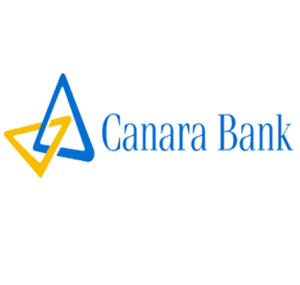
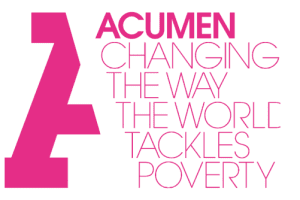
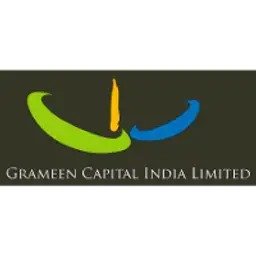
Awarded By
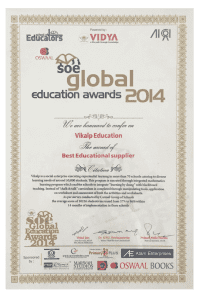
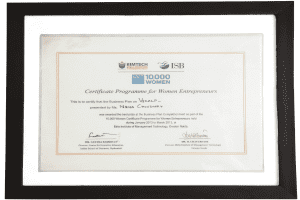
Supported By
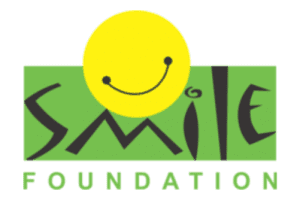


Questions? Call us at : +91-9910074585
Class 9 Online School for Young Leaners
Online School for Class 9 is meticulously designed to align with the principles of the New Education Policy 2020. Our primary objective is to provide high-quality education while keeping young learners connected through our online sessions for Class 9. These virtual lessons are thoughtfully tailored to align with the Class 9 syllabus, following the National Curriculum Framework endorsed by esteemed educational boards in India.
Our dedicated instructors conduct engaging live online classes for 9 students, meticulously following Grade 9 curriculum lesson plans. This Distance Learning program for Grade 9 not only adheres to Class 9 online class guidelines but also serves as an exemplary choice for students in this age group, offering them a fully experiential and well-suited approach to homeschooling.
Interactive Learning with a Variety of Tools
Our E-Learning Class 9 Course goes beyond typical online classes to provide a comprehensive learning experience for Class 9 students. We understand that online learning requires more than just video content. That’s why our program incorporates innovative learning tools, such as 3D Geometric Shapes, Angle Formation Kit, Gravitation Kit, and Law of Motion Kit, to actively engage students and make Class 9 online classes interactive and enriching.
Application through Coursebooks, Readers, and Workbooks
As you move forward in your CBSE Class 9 online education, you’ll find a balanced approach that incorporates both experiential learning and traditional pen-and-paper exercises. This will allow you to effectively apply and reinforce your knowledge. To support this, you’ll be encouraged to complete a variety of oral and written exercises within your coursebooks, readers, and workbooks. These materials are designed to provide you with a well-rounded learning experience that combines the best of both experiential and traditional learning methods.
Enhanced Reading and Comprehension
Key benefit of our E-Learning online study program for Class 9: its emphasis on improving reading and comprehension skills. Our online study program for Class 9 focuses on reading comprehension, vocabulary building, and critical thinking. This approach significantly enhances students’ reading skills, which are crucial for success both inside and outside the classroom.
Impressive Enrollment Numbers
Our online learning program for Grade 9 has seen remarkable success, with a significant number of students enrolled. We’ve received widespread praise for our approach to homeschooling and distance learning. Students in our program have shown marked improvements in their learning and overall comprehension. Enroll your child in our online classes for CBSE Class 9 today and provide them with an outstanding education from the comfort of your home.
Impact on Child
The online learning program for Grade 9 has proven to be an excellent choice for homeschooling and distance learning, with over 2.05 lakh students already enrolled. Our experienced teachers conduct live, interactive online classes based on the Grade 9 curriculum, ensuring that your child receives a high-quality education from the comfort of your home. This distance learning program stands out as a top option for 14-year-olds due to its experiential learning approach and adaptability to homeschooling environments. Click to know more.

